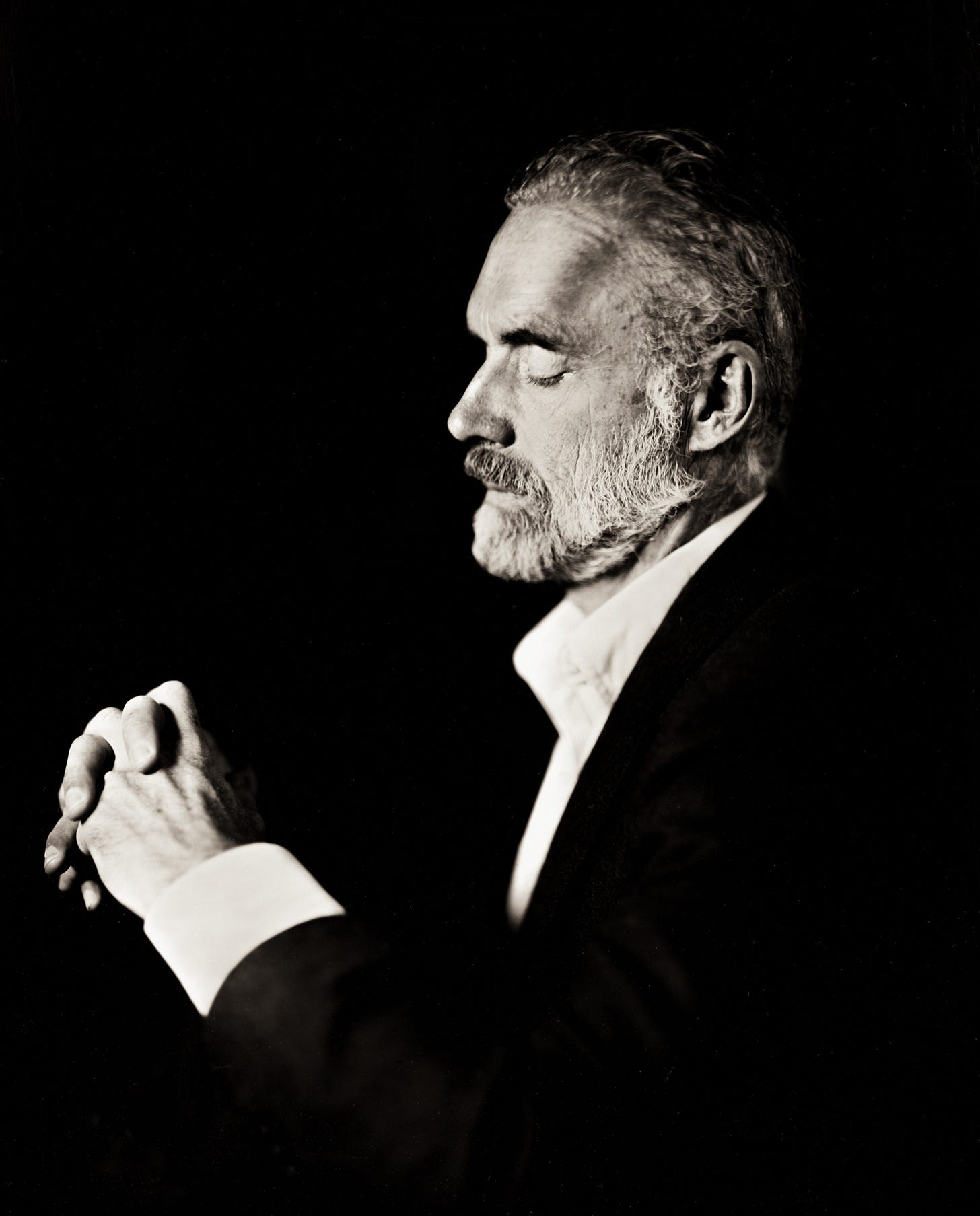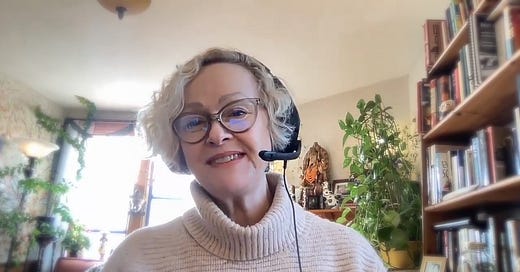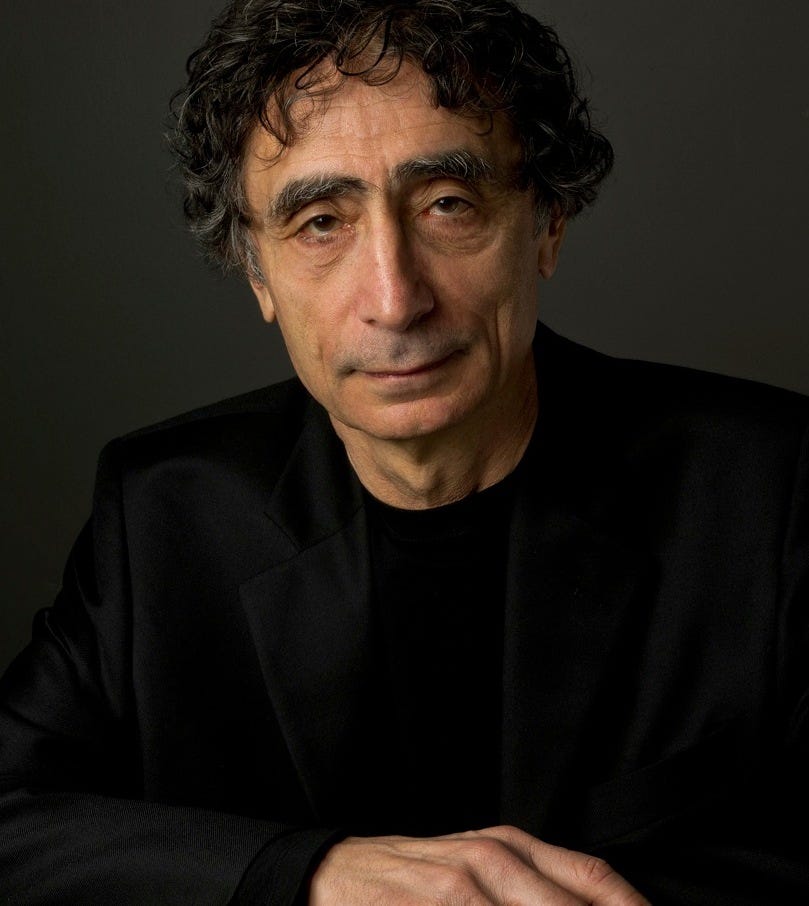
Dear Dr. Peterson;
Since I was very young I have always had an appetite for ideas. I remember the pre-digital age well, the days of books, short stories, articles and radio, to our present day ongoing tsunami of information available to anyone who turns on a device. It’s truly overwhelming, and some days I am aware that I may not have enough brain cells remaining to deal with it all. But somehow, in the midst of all of this, your voice, your ideas have stood out, amongst the avalanche of contemporary commentators, and for this I thank you.
When I first came across your early lectures I felt the visceral level of your genuine desire to communicate what was meaningful to your own heart, and this struck me as rare. But it was not until you ventured forth into the land of principled action, physically standing up against a clamour of correctness, that I really took notice. You exhibited a quality I call spiritual courage, which is, to me, the most endearing of human characteristics.
It would have been so easy for you to capitulate, but you refused, over and over, while exposing yourself to the most astonishingly unCanadian vitriol, and the louder the mayhem, the more I loved you for it. I have always been an instinctive defender of the underdog and the unpopular, precisely because such individuals so often stand alone; and watching you hold your ground was, and is, a remarkably brave and beautiful thing.
There is something particularly distressing to me in the tendency to say a pleasing thing in order to appear righteous, and I celebrate your willingness to call out this shallow habit. One would think such a sticky kind of conformity would have been considered the dangerous virus in an academic environment, but there seems to be no vaccine for it. Not yet, anyway.
Dr. Peterson you have been interviewed countless times and continue to have wide-ranging and deliciously dangerous debates, but there is one subject I have not yet seen you address. I do hope you receive this letter, but if not, it remains a conversation that feels worthy for me to have with myself.
I have loved you for not giving in to being a “nice” Canadian, even though you remain highly agreeable, if somewhat dour at times. I have admired you for daring to break a popular taboo by speaking openly about the rights of children and youth caught in devastating trends of sexual wounding and confusion.
I have been moved by your personal courage in traversing your own dire illness, and the illnesses of your loved ones. I also wanted to say that, as the mother of two grown sons I especially admire your encouragement of young men.
I admire much of what you have brought to the world, though I am of course not necessarily in full agreement with all of your positions. How could I be, how could any of us be.. we are each one of us on unique paths, and in order to acknowledge and admire someone, we need not believe their opinions are absolute.
You, like many of those whom I would list as admirable leaders, tell the truth as best you can, are ready to concede when your view changes and are always examining your own habits of thought and communication. This is all we can ever ask, for as humans we are changeable, as we should be. Forever growing, and discovering how little we truly know.
I must admit I was delighted to see a spiritual awakening of sorts unfold within you; like other thinkers before you, moving from the concrete denominations of science to a deep, more abstract calling of the soul. You shifted from struggling deeply with interviewers who would ask if you believed in God, to falling deeply in love with the Bible, and it has been a beautiful journey to watch.
I am not a Christian, but I have my own experience of the teachings and presence of Christ, and have had a lifelong fascination with the Book of Job. How perfectly does Job portray the essence of our human relationship to suffering, and the depth of surrender which is our ultimate response.
But dear Jordan, if I may, I invite you to take your journey even further, beyond perhaps the bounds of traditional Christian understanding. For surely, a man willing to sit in a degree of objectivity while everyone around him is collapsing into apparent delusion, can apply the same principles to the inherent limitations of institutionalized religion. And while I have certainly not yet heard everything you have to share on this subject, I have heard you say a very cool thing.
You said, “It isn’t that the Bible is true, it’s that the Bible is the precondition for the manifestation of truth. Which makes it way more true than just true. It’s a whole different kind of true. And this is not only literally the case, factually it can’t be any other way. It’s the only way we can solve the problem of perception.”
I love this statement as it so vividly illuminates how layers of collective awareness are revealed. What if you took it a step further to suggest that, just as the central archetypes of faith have unfolded over the centuries, what about the possibility that the soul’s relationship with Divinity is also not limited to the experience of one human life and then an everlasting death.
And what if in the willingness to witness the cyclical nature of our growing awareness, of lifetimes of inhaling suffering and exhaling possibilities of transformation, we find a measure of meaning which otherwise eludes us within the limitations of traditional Christian theology.
As someone who so values the science of psychology, who takes to heart the findings of measured studies, I feel you could enjoy the logic of this proposal. For if we say we are born but once, and death is an ending, no matter what grace we may impart to our living days, ultimately our sense of purpose remains trapped beneath a sort of arbitrariness of life, and despite all the commandments and rules for being a good and decent human being, for the most part we remain stuck in survival nonetheless. Suffering remains the great tragedy, Christ upon the cross as the one who suffered for us all, the price of his choice to embody in a fragile and finite human form.
Jordan you have courageously said, “If you gaze into the abyss long enough you see the light, not the darkness.”
What if, our suffering was no accident, no mystery, no failure, but rather held the very key to the meaning within our human lives. What if we view duality as a gift rather than an expression of our unconscious ways. What if the dark is as important as the light, in fact, ultimately essential in its revelation. If we are ready to look our suffering in the eye, just as you counsel, what if we found there, a wealth of information about who we are and why we were born, not just what is insufficient or weak.
If we dare to extend the power of Divinity to include the awful and the terrible, if we dare to admit that there is nothing outside of Divine order, then there is no accident in the accidents which befall us. And what might have seemed an unthinkable tragedy to be overcome, becomes an opportunity to surrender, a gift offered to those rich in spiritual courage, that most beautiful and rare human trait.
I’ll give you an example, and here I will question one of your favourite principles. You have said that perhaps the most dangerous archetype is that of the devouring mother. When you speak of this your very being quivers, in that characteristic passion you carry when there is a fierce message you wish to convey. And I don’t mean to say that you are fully wrong, or that such a dynamic does not exist. There is a reason the story of Oedipus is called the mother of all myths. But I suggest that it holds a much more layered message, one that speaks to the very foundations of many religious beliefs.
If we can begin with the consideration that God, Goddess, Creator, is neither good nor bad but rather both, and everything in between, it makes things much more interesting. A child who leaves the safety of home to have a new experience may not enjoy every aspect of that learning, but they grow as a result. I think this is what you are teaching. It is the uncomfortable aspects of life which lead to our expansion. Absolutely.
Does this not then imply that our suffering can be purposeful too, and that we are all only children, in the eyes of the Creator. As children we live in a constant dance between innocence and ignorance, and as children this cannot be helped. It is our job.
As children of Spirit, this remains so. When a mother bears a child, she does not suddenly become a model of perfect humanity. She continues to grow through her own patterns of wounding and confusion, learning from her child, and from the profound opportunity given her through the greatest love she may have ever felt in her life. But the dance she walks with her child is never a mistake. It is the meeting of two souls who call forth from one another exactly what the other needs, both in love, and in suffering.
You see when we extend our awareness of the journey of the soul beyond the blink of an eye which is one life, everything starts to make more sense. We are on a path of expansion and contraction, aligning with the archetype of breath which underlies all life on this Earth. It is a model very similar to the labour women experience when physically giving birth. Periods of suffering alternate with periods of peace, as the pending birth grows nearer and nearer. So too, unfolds the journey of the soul.
Jordan consider the example of Kali Ma, Hindu goddess known as the Dark Mother, the Terrible Mother. She wears a garland of severed heads and skirt of dismembered arms, she is capable of tremendous destruction, but is considered the most compassionate goddess of all, in the recognition that death is a necessary precondition for life. And most interestingly and famously, she is a fierce protector of her children.
Gabor Maté, another one of Canada’s treasures, speaks extensively of the dearth of attachment in our modern world, the loss of connection between mother and child, and the profound necessity for solid attachments in childhood to form healthy adults. Isn’t it interesting that Gabor is so interested in bringing compassion into the picture and forging greater attachments, whereas you have strong opinions about the limitations of compassion, and the need to be aware of the dire risk of becoming the devouring mother.
What could lead to such diverse inclinations in two such studied and wise men? Could it be that each one of us is on a unique karmic journey which inevitably is coloured by our own soul’s suffering, including the wounds of past lives and our ancestral heritage. Could it be that the explorations of our gifts, the ways we serve and teach others are also inevitably touched by the imprints of our own healing path.
And even more importantly, what if this is no mistake, no error, but divine perfection, as each one of us shows up in precise polarity to the one next to us, just so that we may achieve spiritual expansion as a result of these contrasting experiences.
I wonder then Jordan, if there is a reason the devouring mother concerns you so greatly, not to take away from your exploration but rather to inform it. Is it possible the reason you exhibit such understanding for rudderless young men, why you are so brave in standing by unpopular ideas of the role of a strong masculine leadership, why you are so moved when you speak of your own wife’s beauty that you begin to weep.. is it possible that you yourself are on a journey of healing in the reclamation of the masculine identity?
And if so, what if I were to tell you that this soul level awakening is not confined to this one lifetime, not simply the result of childhood experiences or genetics, but that you have in spirit, walked this path many times before, and indeed, may continue to walk it for lifetimes to come?
In the willingness to step way back, further and further from the paradigms imposed by centuries of thought regarding the nature of suffering, what I may find is that when we grant the world view that we are all engaged in a vast and nuanced performance of human theatre, perfect and whole, even in its darkest moments; when we extend our spiritual trust beyond the dictates of religious constructs, there are extraordinary patterns to be found within our wounds and our fears.
It is these archetypal patterns, fractals really, which play out for us like the words of a grand storyteller around a fire which has been burning for centuries.
Dear Dr. Peterson, I have great respect for the spiritual heart in you. You have already touched the lives of so many, imagine if your continued inquiry into the psychology of purpose and meaning was to grow into the revelation of a blueprint for the karmic journey of the soul.
And I must be clear, I see karma as having nothing to do with reward and punishment, but instead as a natural expression of the dualistic impulse of Spirit, to be seen, reflected, and then deeply, knowingly, understood.
What if we were to find the profound moral compass you seek hiding within compassion after all. Love, not ever as weakness, but as an encompassing force, an expression of the unconditional recognition of the light within one another, even in the moments we act from unconscious fear.
If every darkness holds within it the power to awaken us to the light, what if even the devouring mother gives the gift of awakening to her son?
I offer a few stanzas from the transmission, For What Do You Wait.
And when I asked you why do you suffer the wise and generous heart within you rose up and said so that one day I may awaken from the dream wherein I thought I was lost to find myself in my own silk bed held by the arms of the endless heart of the Mother more real more fierce more purposeful than any schemes of doubt and because I once dreamt that I had been away I am given the gift of returning choosing claiming where and how I will live each day The winds of my old fears have taught the kite of my light how to fly.. much love, Adi






Share this post